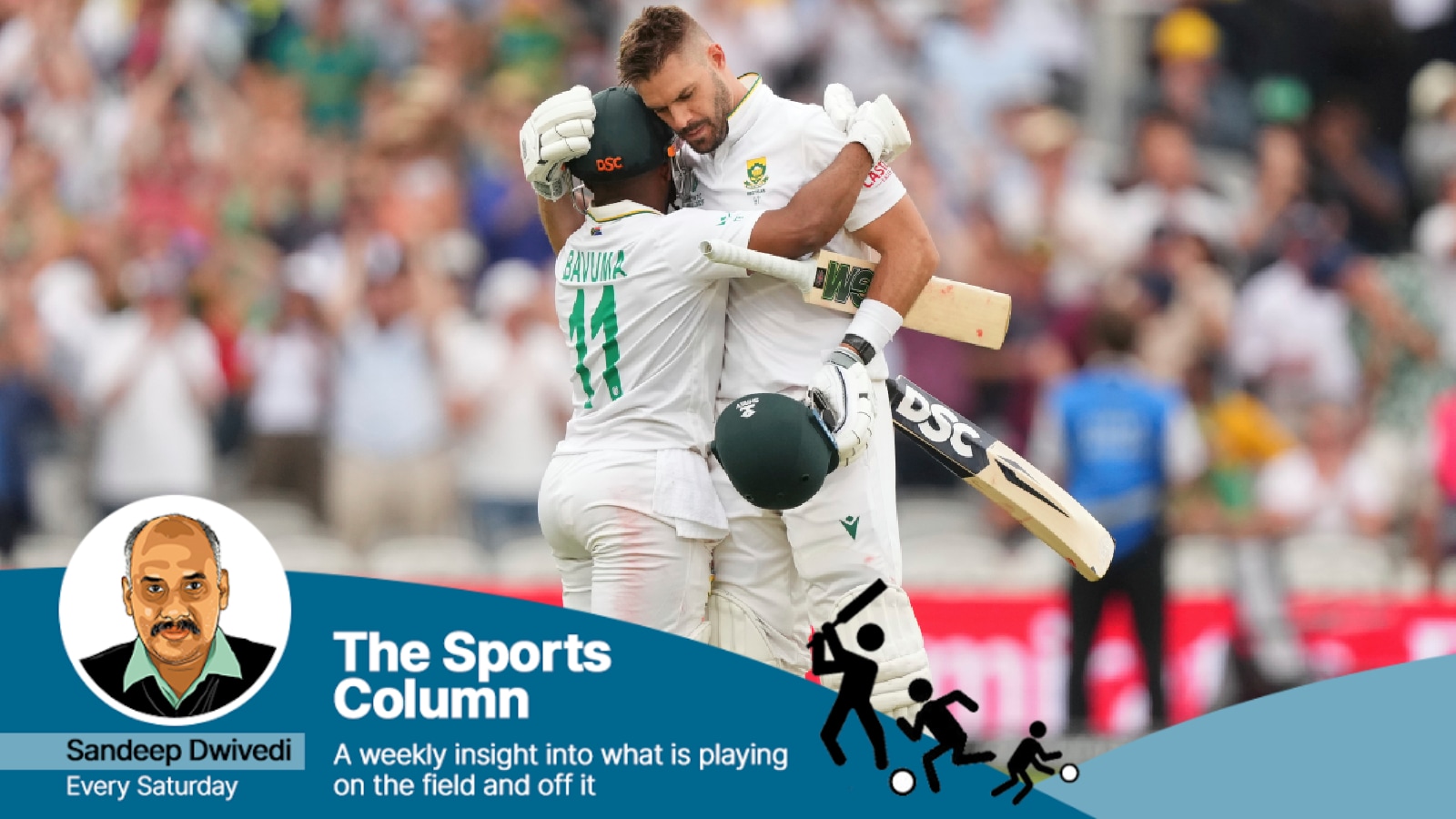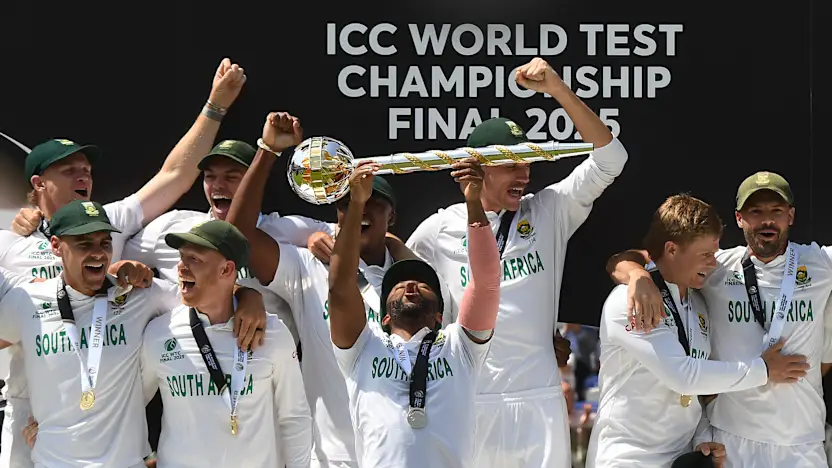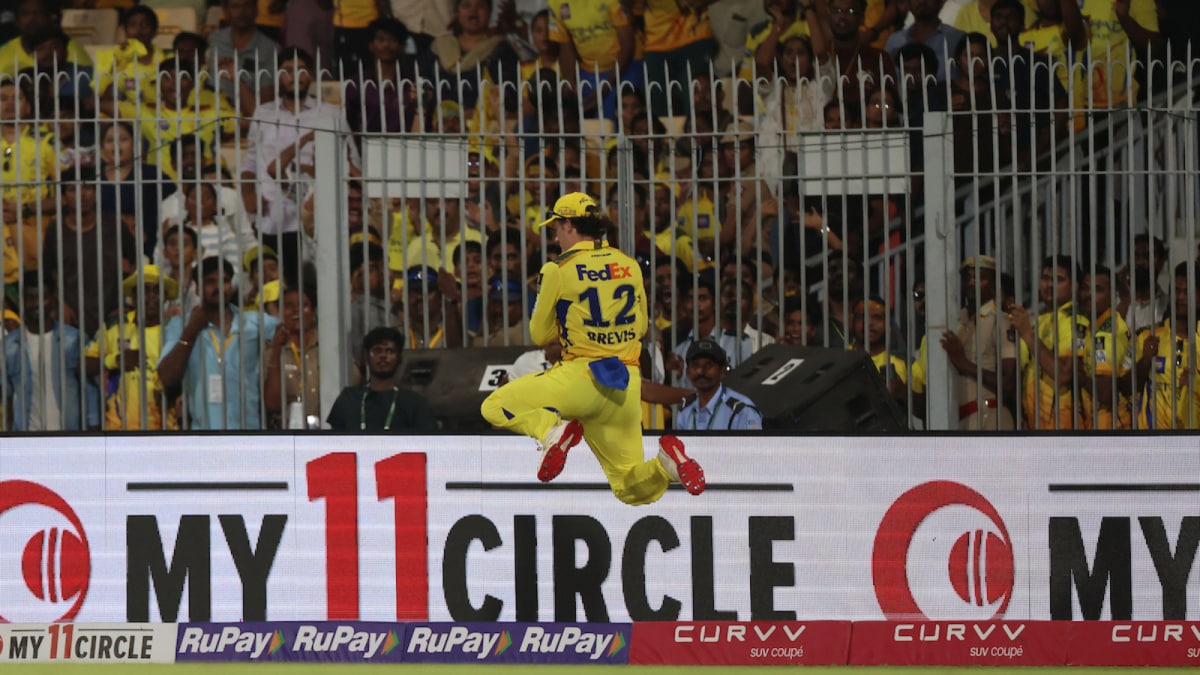Today South Africa expected to buck trend, snub fairytale-spoilers Australia

For once, Australia might not be able to stop a charming fairy tale from unfolding. This one is about a diminutive black cricketer from the township helping South Africa take a giant leap in the post-apartheid era.At Lord’s on Saturday, the team with a history of spoiling many parties and pouring water on planned victory parades could well be dealing with the trauma they regularly inflict on their rivals. On Day 3 of the World Test Championship final, South Africa will be on the cusp of a famous win and the Aussies are very likely to end up as the world’s most popular runners-up ever.South Africa, just two wickets down, needs 69 runs to be the second team this century to beat the mighty Aussies in an ICC final. And cheering the overnight unbeaten batsmen – opener Aiden Markram (102) and skipper Temba Bavuma (65) – to go past the target will be a host of jilted international cricketers and their army of traumatized fans, living with the painful memory of watching the Aussies walk away with silverware which they would think was within their grasp.Story continues below this adWhat Germany is to football, Australia is to cricket. Puskas’s Hungary, Cruyff’s Total Footballers, England’s golden generation, Maradona and Messi’s Argentina, South Korea and Brazil at home – the world has often wondered how generations of German footballers are born with the knack of adding anti-climatic twists to perfectly flowing Cinderella tales.Akram’s Pakistan, Ganguly and Rohit’s India, Jayawardene’s Sri Lanka, McCullum’s New Zealand – to name a few – the Aussies too rarely missed the chance to prick those beautifully floating bubbles over the cricketing skies. The mighty cricketing nation is reputed to write its own scripts where the hare overruns the tortoise and Goliath pins down David.Giving credit where it is due, the famous Aussie consistency, like the fabled German efficiency, is single-handedly responsible for denying the sport many feel-good bedtime stories in different languages and dialects.This time it seems, fingers crossed, they have failed to make the sporting literature poorer. In years to come, kids in South African townships will be told the story of their country’s first-ever full-time black captain Bavuma, whose name, in his native Xhosa, means Hope. It can’t be anybody but a soothsayer who came up with such an apt name for the 5’4″ cricketing super hero.Story continues below this adFor a nation still dealing with apartheid era trauma, Temba returning home with its first major ICC trophy would mean so much to so many. A well-balanced mixed team, with no overwhelming intrigue around it, would have delighted the founding fathers of the born-again post-apartheid era South Africa.The sight of Markram and Bavuma – a white former captain and a black present skipper – guiding the team through a tricky chase would have gladdened the divided society used to hearing whispers of racial tensions in the sporting arena. Bavuma’s men, in case they win this one, would have done more for the country’s two big goals – inclusivity and reconciliation – than what most government initiatives could take years or decades.A title triumph in the game’s toughest format would have sky-rocketed the ambitions of the young cricketers growing up in Langa, the black township near Cape Town where Bavuma grew. Not too far back, this used to be a ghetto with non-existent basic amenities. After Nelson Mandela’s release from prison in 1990 and the subsequent multi-racial election in 1994, Langa saw change. The erstwhile marginalised space with match-box mud huts now has high-rise buildings with satellite discs perched on most balconies.In years to come, kids in South African townships will be told the story of their country’s first-ever full-time black captain Bavuma, whose name, in his native Xhosa, means Hope. (AP) In years to come, kids in South African townships will be told the story of their country’s first-ever full-time black captain Bavuma, whose name, in his native Xhosa, means Hope. (AP)Langa hasn’t forgotten its past but it has certainly moved on. At the exact place where 69 black anti-apartheid protesters were killed by police bullets in 1960 is the Sharpeville massacre memorial. During a visit to Langa during India’s 2018 tour to South Africa, one could feel the reverence among the locals for the martyrs and an optimism about the new life they gifted them.Story continues below this adBut Langa was bitter about the outside world’s attitude towards their cricket and cricketers. That was the time, Bavuma had been dropped for the India Test in his own backyard – Newlands, Cape Town.Among those at the stadium disappointed by the playing XI selection was Cagew Ezra. He was 65 but looked barely 50. He had been tasked by the Western Province Cricket to develop cricket in black townships. Unofficially, he had kept an eye on Langa’s bright young cricketers for ages. He was at the non-striker end, when Bavuma, just 13, came up with his coming-of-age match-winning knock for Langa CC.That day Ezra, a Black, knew Bavuma was special and he would take him under his wings. Passing cricketing wisdom to the next generation happens to be the age-old Langa tradition that Bavuma benefitted from. These timely tutorials by multiple experts shooting the breeze around Langa would make Bavuma change opinions and perceptions in South Africa.He would go on to prove that Black cricketers didn’t take up the sport just to bowl at white and coloured players. Bavuma showed that players from townships can bat too. He would become the first black cricketer to score a Test hundred for South Africa. “Temba is a big role model because every kid feels that I will get there one day,” Ezra would say.Story continues below this adBavuma’s big test as a leader came up in the 2021 World T20 tournament where his close friend Quinton de Kock didn’t take the knee, the symbolic support for the Black Lives Matter movement. This was a ticking time-bomb, a PR disaster waiting to happen. The world called de Kock’s stand insensitive, but Bavuma didn’t rush to pass judgement nor was he tongue-tied.“My beliefs, the way that I see things, is shaped by my own experience and background, and so is the other person’s. If there is a disagreement in terms of beliefs, in terms of views, that’s why we have those hard conversations. Through those conversations, we will be able to get the comfort to accept the other person’s decision. I can’t force anyone to see things the way I do, neither can they force me to,” he would say.That day Bavuma rose in stature, from a shrewd captain he became a statesman. What he lacked to be hailed as a true leader was a Cup. On Saturday, he could tick that box too.Fingers crossed, this story is too good to have a tragic end.













